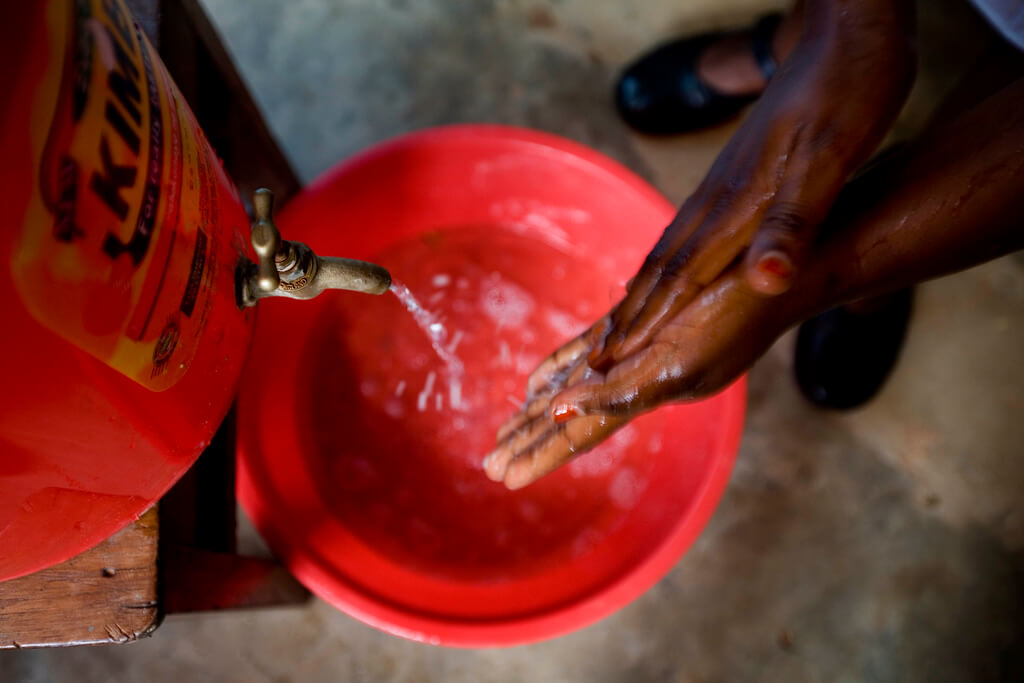Of all the public health problems we face, why focus on clean clinics? The answers are simple.
Unsafe water, sanitation and hygiene (WASH) conditions and practices discourage people from seeking care at health facilities. This includes pregnant women, who may choose to give birth at home rather than face unhygienic conditions.
And those who do seek care in facilities may face serious health risks, including pregnant women and newborns, who are particularly vulnerable to infection. The World Health Organization (WHO) estimates that 15% of all hospital patients will develop one or more infections during their stay, making unsafe WASH an issue touching hundreds of millions of patients every year.
In fact, in a study of more than 66,000 facilities in over 50 countries, WHO found:
- 38% of health care facilities did not have an improved (safe, potable) water source;
- 19% did not have improved (clean, safe) sanitation; and
- 35% did not have water and soap for handwashing.
In rural settings, these statistics are often much worse.
Thankfully, USAID’s flagship Maternal and Child Survival Program (MCSP) is proving that health facilities can reverse this trend through simple WASH improvements that contribute significantly to MCSP’s overall infection prevention and control (IPC) efforts. These changes – such as creating hygiene improvement action plans, ensuring staff follow related protocols, and maintaining a clean facility with proper waste management – have a big impact without requiring large investments. MCSP’s approach fits in well with WHO’s “Clean Care is Safe Care” program.
In Haiti, for instance, the Program’s Clean Clinic Approach (Sant Sante Pwop) began with a rapid assessment of 22 facilities. Results in hand, we worked with national and local government and health facility management to create minimum WASH standards for the country’s health facilities, which were introduced to participating sites. With the government, MCSP then assisted health facility staff to prioritize improvements, create action plans and build on the IPC standards.
But our work didn’t end there: the Program continues to support the Haitian Ministry of Health to monitor and encourage progress at each health facility against these action plans. Successful facilities are rewarded for progress through social recognition. After each inspection, results from participating facilities are distributed and shared publicly, thus creating healthy competition among facilities. And those that progress rapidly are recognized more widely – on the radio and via social media.
Most gratifying, these efforts are leading to significant WASH improvements in Haitian facilities. By the first monitoring visit, participating health facilities had improved their “clean clinic” score by an average of 14 points from baseline (using a 100 point scorecard). Achieving “clean clinic status” is a goal, and one that can be revoked if facilities backslide.
For MCSP, our WASH goals in Haiti go beyond individual facility status, of course. Our aim is improved quality of the country’s health care through improved facility WASH management and strengthened IPC and compliance. As one measure, we’re monitoring client satisfaction and attendance, knowing that improved WASH conditions help to establish trust in health services and influence behavior – such as attending prenatal care and choosing to deliver in a facility.
This #GlobalHandwashingDay, help spread the message that handwashing is a lifesaving habit, both in and out of the health facility. A study in Nepal found that birth attendant and maternal handwashing were associated with a 41% lower mortality rate for newborns. Even one preventable death is one too many!
To learn more about MCSP’s Clean Clinic Approach – and our work in WASH – download the related brief and visit us online.

